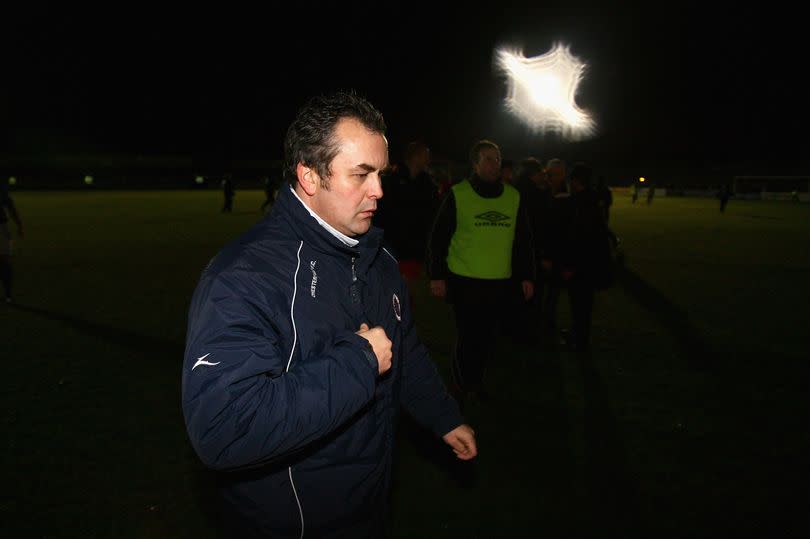How Liverpool look to provide mental edge with former manager at the forefront

Liverpool have been competing at the peak of their powers for over five years under the guidance of Jurgen Klopp.
While they have fallen marginally short, following last season’s disappointing campaign, the Reds have exceeded the expectations of many. Klopp will leave with a Premier League title under his belt as well as Champions League, FA Cup, Carabao Cup and Club World Cup success at the end of the campaign with a new dawn on the horizon for the club.
Performance and sports psychology consultant Lee Richardson has been at the club for five years, signing his contract with the club on the day that they claimed a sixth European crown in the win over Tottenham Hotspur in Madrid, and has been alongside the German and providing support in mental challenges at the club along the way.
READ MORE: What Tom Hanks said about Liverpool as Aston Villa man fumes with treatment
READ MORE: What Jurgen Klopp was spotted doing at Anfield ahead of emotional farewell
Player welfare has emerged front and centre of the conversation in football, particularly following the increase in matches and shorter breaks the professionals have to encounter. Away from the pitch, there are everyday life struggles as well as the added pressure from social media, plus the recent spate of attacks on various platforms to footballers.
This season, Liverpool have been forced to delve into their youth ranks to provide cover following injuries to their first-team members. The likes of Jarell Quansah, Conor Bradley, Bobby Clark and Jayden Danns have come to the fore as contenders for first-team positions with a new dawn on the horizon at the Reds following Klopp’s departure.
Speaking to the ECHO, Richardson lifted the curtain to provide an insight into the support that the players receive ahead of Mental Health Week which began on Monday.
"They’ve got access to myself if there is an issue," he said. "For players, there are inherent challenges in their careers. They’ve got life, people they care for, sometimes things happen and they’re susceptible to long-term injury, deselection, contractual issues - there are several things that can trigger episode an episode where they don’t feel great.
"I’m around most of the week, I have a room right by the players' dressing room so they know there’s a port of call there. If I can’t facilitate or help them or know someone who might know then I could refer out."
The 55-year-old’s journey into psychology is unfamiliar. Richardson enjoyed a successful playing career at the likes of Watford, Blackburn Rovers, Aberdeen, Oldham Athletic and Chesterfield - a team he would later manage.
A midfielder during his playing career, Richardson’s time as a professional footballer spanned 17 years from 1987 to 2004, battling through different eras before taking steps into psychology where he picked up a degree, master's and chartered status.
"It occurred to me in different times that things were sometimes tough and there were certain challenges that I was facing," says Richardson.
"I was genuinely interested in that area and on the performance side of things, I often played in big games where the psychological aspects were the most important in many ways and not well understood.
"It was curiosity, curiosity to find out more about psychology, the human mind and the recognition that I was in an environment where it is a taboo subject both mental health and mental performance where it wasn’t really discussed at all.
"We’re talking late 80s, early 90s where I started to get interested and it was at Oldham where I started studying part-time, I was coming to the end of my career so in those days, the extra noughts in your pay packet were not there, so planning for a career after was normal
"I was already going down the coaching route but I had knowledge that it was something a lot of lads had an interest in, there was no guarantee you would be able to earn a living out of it. So it was a mixture of curiosity, personal experience and looking towards a new life outside of football."

With 17 years and over 400 career appearances, he feels that his experience has provided a perfect grounding to help current professionals and aspiring footballers coming through the ranks at the academy.
He added: "It’s helped massively because you experience first-hand some of the challenges and the general experience of being a professional, how other people view you.
"To some extent, you’re hardened to the brutality of football, which you can, because you’re striving for success. It’s been a big help to me, especially being a player, coach then manager you see things from different perspectives as well, I’m pleased I’ve had that career."
The Liverpool squad have access to an app that provides different levels of support, which also acts as an educational platform, with confidential access 24/7.
There have been more and more stories of players past and present disclosing their difficulties. Richardson says that it is important that those who are struggling have the privacy to deal with the issues on their own terms but adds that more support is available.
"There will always be a sense of embarrassment or self-consciousness about disclosing how you feel,” the 55-year-old continues.
"I don’t think it’s entirely unhealthy but as long as people or players are aware of the fact that feeling low or anxious or a negative place in too long a period is not a good way to go about things. At some point, feeling in those places for a short period of time, it’ll be a good idea to do something about it.
"Whether it’s doing something that helps you, education is a part of it, or sharing is a process of learning while you feel the way you do, those are healthy things to do.
"In a physical sense, that would be classed as recovery, an injury for example, people suffer from psychological injuries from time to time through living modern life. At Liverpool, there are things in place that there probably wasn’t 10 or 20 years ago.
"There are lots of high-profile examples of the self-help that we went in for, some of my age or a bit younger, the coping mechanisms that have been used like alcohol, social drugs, gambling and other behaviours that lead on to addiction are in a sense the person trying to help themself but just in a negative way - it only makes things worse.
"It is surprising how often it has taken people in the past but hopefully, the barrier to seeking help has hopefully lowered and the threshold for mental health issues.
"Hopefully, it’s dawning on more people and it’s a good thing. The way that we do things is part of the psychology to understand what we do, how we behave and how we do things better - it doesn’t always happen - but it’s the premise of a psychologist to explain it, provide solutions and strategy to support it."

 Yahoo Sport
Yahoo Sport 






































